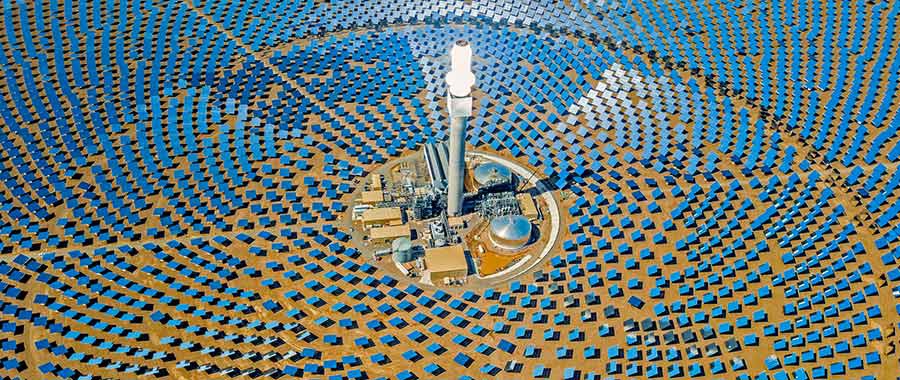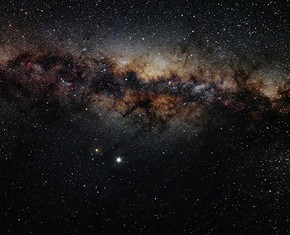The views expressed in our content reflect individual perspectives and do not represent the authoritative views of the Baha'i Faith.
Recently the democratically-elected global governing body of the Baha’i Faith responded to Baha’is who had questions about anthropogenic climate change.
That guidance on the sometimes controversial issue isn’t just for Baha’is, though—it can help everyone gain a broader and more spiritual perspective on climate change and what we can effectively do about it.
The Universal House of Justice, in an official letter written by its Secretariat, opened its letter by saying:
Dear Baha’i Friends,
The Universal House of Justice has received your email letter of 21 June 2017 raising questions about the involvement of the Baha’i community in addressing the issue of anthropogenic climate change. You express your views about the contemporary discourse surrounding climate change, observing that there is pressure to accept an extreme position about the causes and predicted catastrophic results of climate change and to support associated economic and social policies. You also share your perception that some Baha’is have taken a position strongly aligned with such an extreme position, promoting its arguments and suppressing the views of other believers and, as a result, you fear that they may be raising the requirement to act on this issue to the level of a religious principle and involving the community in a partisan political debate. We have been asked to convey the following.
The House of Justice appreciates your turning to it for clarification of matters that have been a source of concern to you. It welcomes the opportunity not only to address the issue of climate change itself but, more broadly, to clarify certain ideas about the way in which Baha’is are to understand and contribute to the betterment of the world.
Your letter reflects thoughtful concern about the practical limits of scientific knowledge, its implications for public policy, and its possible misrepresentation in an argument warning about catastrophic anthropogenic climate change that you feel is extreme, political, and unjustified by the facts. Although you do not mention it, you are surely aware that your measured skepticism is largely overshadowed in the public debate by another extreme perspective, promoted by political and vested interests, that goes as far as denying climate change and attempting to dismiss or contend with relevant scientific findings. – The Universal House of Justice, 29 November 2017, to a group of individual Baha’is.
Here, the Universal House of Justice clearly points out that the denial of the science of climate change is an “extreme perspective” “promoted by political and vested interests.”
That position supports the overwhelming majority of the world’s climate scientists, who agree that global warming is happening, and that human activity causes it.
The IPCC [Intergovernmental Panel on Climate Change] Fifth Assessment Report (AR5), written by a panel of hundreds of climate experts and scientists from member countries of the World Meteorological Organization and the United Nations Environmental Programme (the environmental agency of the United Nations, now known as UN Environment), plus a team of external reviewers, states:
Human influence on the climate system is clear, and recent anthropogenic emissions of green-house gases are the highest in history. […] Warming of the climate system is unequivocal, and since the 1950s, many of the observed changes are unprecedented over decades to millennia.
Continued emission of greenhouse gases will cause further warming and long-lasting changes in all components of the climate system, increasing the likelihood of severe, pervasive and irreversible impacts for people and ecosystems.
Today, no credible scientific body in the world holds a divergent opinion, and no organized scientific body of national or international scientists rejects the findings of human-induced effects on climate change. This kind of scientific unanimity is rare, and points to the overwhelming consensus on the issue among scientists around the world.
So this Universal House of Justice analysis, obviously furthered by the primary Baha’i principle of the agreement of science and religion, accords with the prevailing scientific wisdom, and conforms to the basic Baha’i principle of the essential harmony of science and religion:
It is impossible for religion to be contrary to science, even though some intellects are too weak or too immature to understand truth.
God made religion and science to be the measure, as it were, of our understanding. Take heed that you neglect not such a wonderful power. Weigh all things in this balance. …
Put all your beliefs into harmony with science; there can be no opposition, for truth is one. When religion, shorn of its superstitions, traditions, and unintelligent dogmas, shows its conformity with science, then will there be a great unifying, cleansing force in the world which will sweep before it all wars, disagreements, discords and struggles—and then will mankind be united in the power of the Love of God. – Abdu’l-Baha, Paris Talks, pp. 145-146.
















Comments
Sign in or create an account
Continue with Googleor